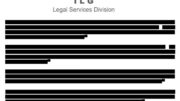By Jeffrey A. Roberts
CFOIC Executive Director
The Regional Transportation District no longer charges the public 25 cents per page for electronic copies of public records.
“It’s just 25 cents: a measly quarter,” wrote RTD General Counsel Rolf Asphaug in a May 15 internal blog article provided to the Colorado Freedom of Information Coalition. “But in this case, RTD – our elected board of directors – believes that the right call is to stop charging this fee.”
RTD Director Natalie Menten has been pushing for the change along with a reduction in the hourly rate the district charges to research and compile records requested by the public and news media. She made the case at a meeting earlier this month, arguing that taxpayer money already is used to pay district staff to manage files and documents.

“The RTD board member who brought up this issue was making the point that the fee seemed contrary to our value of transparency,” Asphaug wrote. “Other board members chimed in that the fee really seemed a little steep when no paper, toner, etc. was being used by RTD to respond to the request.”
Asphaug added that RTD receives many Colorado Open Records Act (CORA) requests, “and the fees paid by requesters do not even come close to compensating RTD for the time spent by our staff to respond to these requests. This was one of those cases where ‘the law lets us do it, so we do it’ – in order to at least partially recover our costs.”
It’s arguable that the CORA provision allowing government entities to charge a maximum of 25 cents “per standard page for a copy of a public record” is meant to recover costs associated with making paper copies, not PDFs. Any extra work involved in the creation of a PDF could be included in the hourly research-and-retrieval charges allowed under the law, although the first hour is supposed to be provided at no charge. CORA also says entities are not allowed to charge requesters for the transmission of public records via email.
On her Facebook page, Menten called RTD’s elimination of per-page fees for electronic records “a small win for you and me.” But she noted that a 100-page PDF was costing the public $25 – not an insignificant amount.
Nathaniel Minor, a Colorado Public Radio reporter who covers RTD, said he was asked to pay $24 for a 96-page report on the North Metro Rail Line but avoided the cost when Menten posted it on her website. He recently had to pay RTD $2.50 for a PDF of a PowerPoint presentation.
“Every little bit helps in making public documents actually available to the public,” Minor said of the policy change. “That’s what it’s all about. If they’re making it a little bit easier, we’ll take it.”
RTD for now isn’t reducing its $30 hourly rate (after the first free hour) for researching and compiling records in response to requests, even though Menten says an $18-per-hour rate would be more affordable for the average person. Other government entities in Colorado generally charge $30 – the maximum rate allowed under CORA – although some charge $20 or $25.
Those hourly fees can add up, as Minor sometimes points out in his stories. For instance, Colorado Public Radio paid $600 last year for contractor oversight records which showed that a crack in the undercarriage of a commuter rail car led to cars being removed from service so they could be fixed.
Menten, who represents Wheat Ridge, Golden and most of Lakewood on the RTD board, said she also hopes to get RTD to publish the district’s detailed payments register in a database format so that the public doesn’t have to convert and stitch together multiple PDFs.
Asphaug told CFOIC that RTD’s administration department is evaluating that suggestion, along with another proposal from Menten that RTD invest in a dashboard-type financial reporting solution for public-sector agencies called OpenGov.
Follow the Colorado Freedom of Information Coalition on Twitter @CoFOIC. Like CFOIC’s Facebook page. Do you appreciate the information and resources provided by CFOIC? Please consider making a tax-deductible donation.




